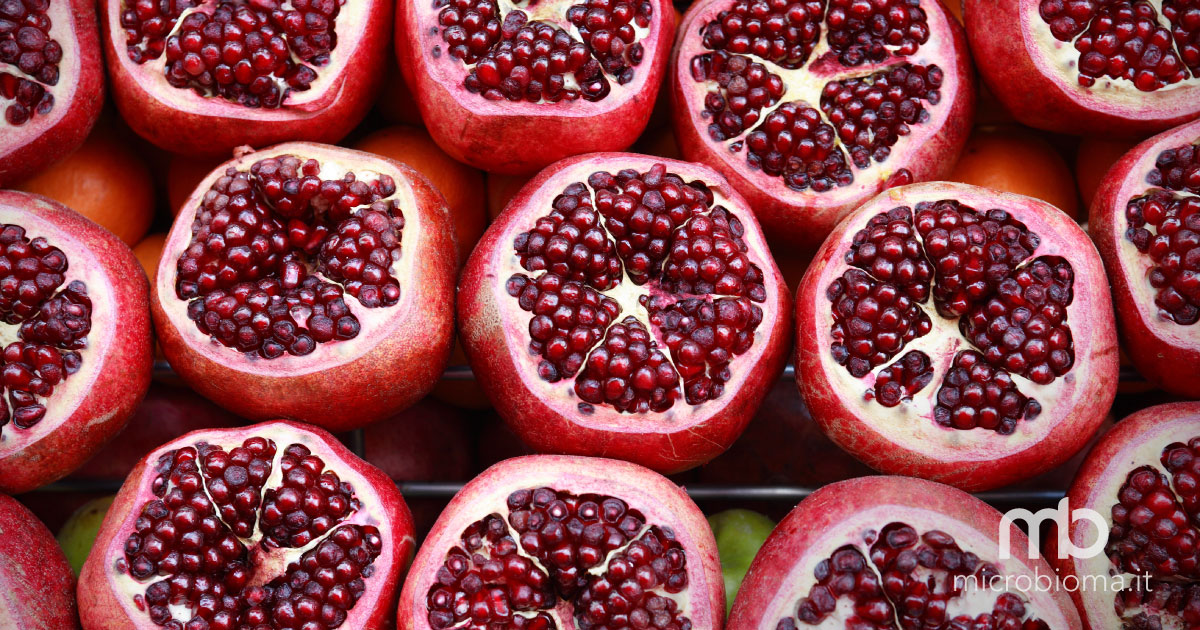• Fearful memories
• Microbial metabolites
What is already known on this topic
Pomegranate has been used for centuries for its medicinal purposes, which include reducing UVB-induced skin damage. Previous studies have shown that pomegranate extract inhibits the
growth of bacteria responsible for acne, suggesting that pomegranate metabolites alter the composition of the skin microbiota
.What this research adds
Researchers recruited 74 women and randomly divided them in three groups that received pomegranate extract, pomegranate juice, or placebo for 12 weeks. Then the team analyzed the participants’ skin microbiota composition and assessed the reaction of their skin after exposure to UVB. The minimal dose of UVB that induced visible reddening was higher for the women who received pomegranate extract or juice compared to those who received a placebo. What’s more, consuming pomegranate extract resulted in changes in the skin microbiota composition.Conclusion
The study did not establish a direct correlation between resistance to UV damage and bacterial abundance in the skin microbiota. But the findings suggest that consuming pomegranate leads to increased UVB skin protection.
Consuming pomegranate can alter the skin microbiota and confer resistance to UVB-induced damage. That’s the conclusion of a randomized controlled study, published in Scientific Reports, that looked at the effects of pomegranate juice and extract on more than 70 women.
Pomegranate has been used for centuries for its medicinal purposes, which include reducing UVB-induced skin damage. Previous studies have shown that pomegranate extract inhibits the growth of bacteria responsible for acne, suggesting that pomegranate metabolites alter the composition of the skin microbiota.
To better understand the effects of pomegranate, Susanne Henning at the David Geffen School of Medicine and her colleagues recruited 74 women and randomly divided them in three groups, which received either 1000 mg of pomegranate extract, 8 oz of pomegranate juice, or placebo for 12 weeks.
UVB protection
To determine the minimal UVB dose that induces visible reddening or erythema, the researchers exposed the inner arm skin of all women to increasing UVB doses and exposure times.
The minimal dose of UVB that induced reddening was higher for the women who received pomegranate extract or juice compared to those who received a placebo.
Microbiota changes
Next, the researchers assessed whether the consumption of pomegranate extract or juice altered the skin microbiota. At the beginning of the study, there were no differences in the skin microbiota composition of the three groups of women. After 12 weeks, bacteria from the Aerococcaceae, Methylobacteriaceae and Campylobacteraceae families were altered in the groups that consumed pomegranate extract compared to the group that received a placebo.
In particular, Campylobacteraceae were increased in the group that consumed pomegranate extract, while Methylobacteriaceae were decreased in the placebo group. Bacteria belonging to the Methylobacteriaceae family are known to produce UVA-absorbing metabolites, which might contribute to UVB skin protection. The proportion of these bacteria did not change in the group that received pomegranate extract.
However, pomegranate consumption had no effect on the diversity of the skin microbiota, and the researchers observed no changes in skin microbiota between the group that received pomegranate juice and the placebo group.
Although the study did not establish a direct correlation between resistance to UV damage and bacterial abundance in the skin microbiota, the findings suggest that consuming pomegranate leads to increased UVB skin protection, the scientists say.









